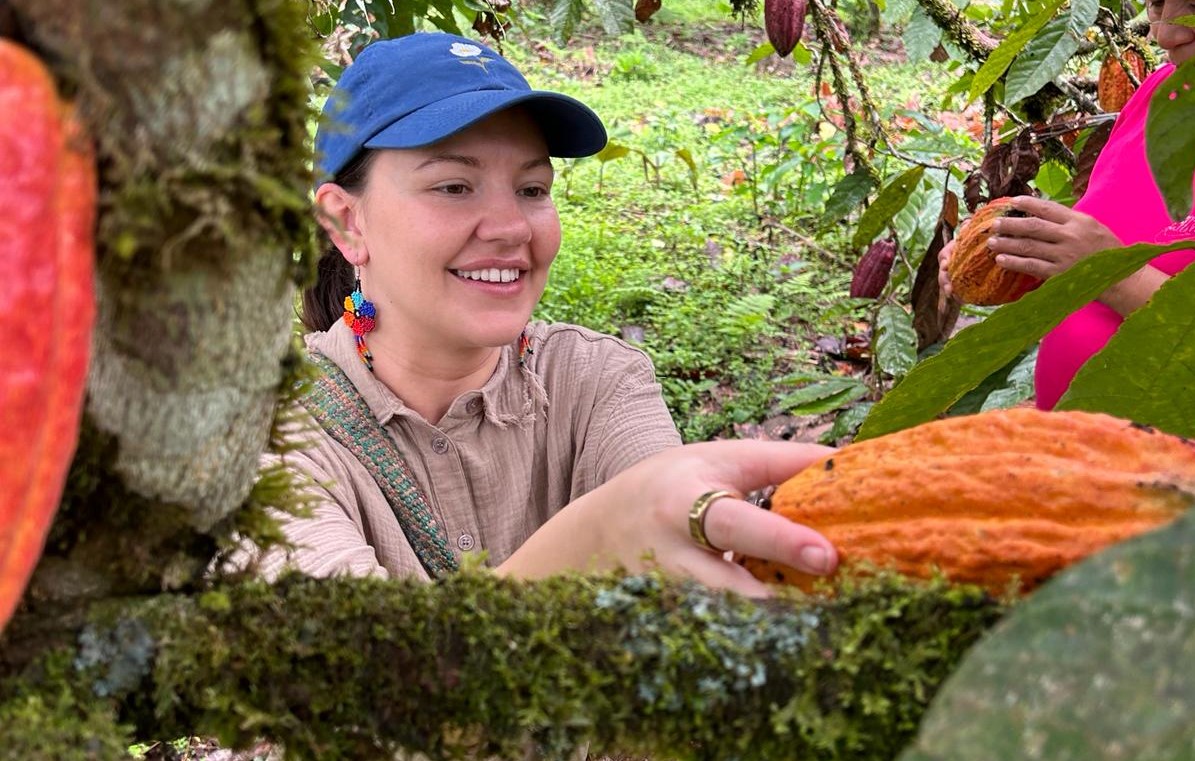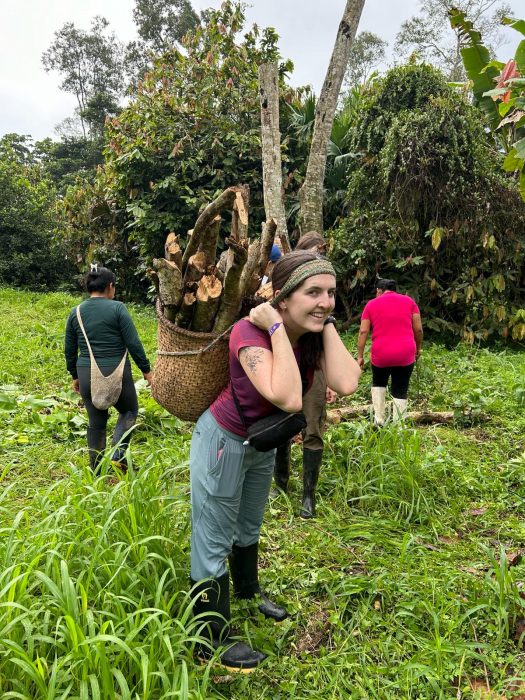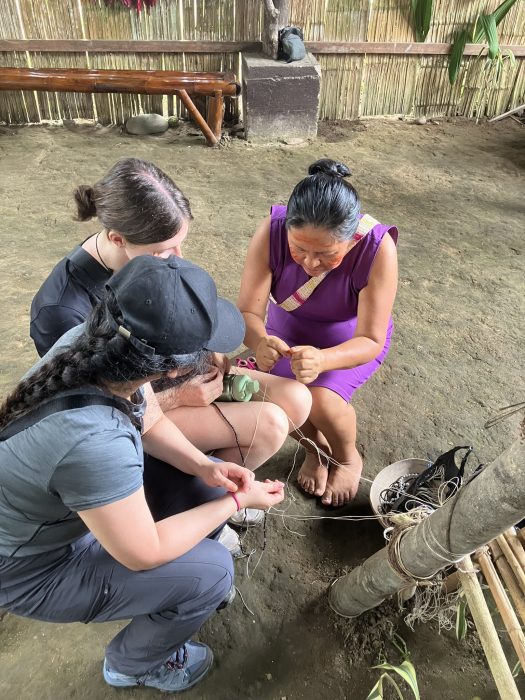
Midwifery student Nicole Martin harvesting medicinal plants in the rainforest.
Program sends Rady students to rainforest
‘Traditional ways of knowing…doesn’t have borders’
A group of 10 rehabilitation sciences, nursing and midwifery learners recently travelled to the Amazon region of Ecuador to learn about health and well-being from a collective of traditional healers and midwives.
The trip was organized by the Office of Interprofessional Collaboration (OIPC) in the Rady Faculty of Health Sciences, with financial support from the College of Rehabilitation Sciences Endowment Fund.
The students travelled from February 16-25 starting to the capital city of Quito and small communities in the Andes. They spent six days in the rainforest in Amupakin, a birthing centre run by a collective of traditional Kichwa midwives known as “mamas.” Additionally, the group took part in hands-on workshops, cultural exchanges and harvested medicinal plants.
Lisa Mendez, occupational therapy instructor and interprofessional practice coordinator with OIPC, facilitated renewing a collaboration that had previously been led by the UM Office of Community Engaged Learning (CEL).
“Last year, I went down there with my family to try to stoke the fire that the pandemic put a damper on, to see if they wanted to keep the relationship going,” Mendez said.
She said facilitating the experience through Rady was a natural fit, as the community was keen to host future health-care providers.
One of the main objectives of the trip was to recognize the importance of cultural safety in providing health care within Indigenous communities. Mendez, who has been coordinating groups of Rady students to learn from Indigenous communities in Manitoba since 2017, noted the students will also have an opportunity to learn in Manitoba First Nation communities this summer.
“I want to make sure we can link this back to our local context. Learning about traditional ways of knowing and being doesn’t have borders.”

Occupational therapy student Josée Rochon.
Second-year occupational therapy (OT) student Josée Rochon, said she saw the trip as a once-in-a-lifetime opportunity to learn about another culture.
“Most of the mamas spoke Spanish, and I’m pretty good with Spanish so I could understand that. But some of them only spoke Kichwa, which is a whole other language,” she said.
Rochon, who plans to work in community health in Kenora, Ont., said she was impressed with how the community cares for the land and how different plants are used for medicine.
“It definitely broadened my understanding of different ways of knowing. We’ve also been learning a lot about Indigenous cultures in OT and I saw a lot of connections.”
Second-year respiratory therapy student Airha Ramilo said she was particularly interested in seeing how plants were used to treat respiratory diseases in the community.
“If a patient was coughing, or even had an illness like COVID, the mamas would combine different plants to treat it. Growing up with Western medicine, I never thought about plants in a medicinal way, so I thought that was very fascinating,” she said.
She was also impressed with how traditional medicines were part of their day-to-day lives.
“One of the mamas got stung by a scorpion while she was preparing food. She brushed it off, applied some medicines from the rainforest, wrapped something around it, and continued as usual.”
Nicole Martin, a third-year student in the College of Nursing’s midwifery program, has always had an interest in working internationally and saw the trip as a perfect opportunity.
“I gained such an appreciation for the knowledge that these women carry. They’ve been practicing for generations and carry so much wisdom and knowledge,” Martin said.
She also gained an appreciation for the other health disciplines represented on the trip.
“It was great to learn what respiratory therapists and occupational therapists do. It was a wonderful way to collaborate and build respect for each other’s professions,” Martin said.

One of the Amupakin community midwives with respiratory therapy students Airha Ramilo and Emily Bjarnarson.
Shelly Lam, a second-year physical therapy student, appreciated working with students from other disciplines as well.
“I thought it was a really valuable experience getting to work with the midwifery students. They talked about concepts that I don’t get to think a lot about in physiotherapy, like women’s health and the birthing process.”
She said she now wants to learn more about Indigenous populations close to home.
“I want to help amplify the voices of those who have valuable lived experiences to share, but may not have the means. The mamas have so much knowledge, but they don’t have the ability to write academic papers and share their knowledge with the world in that way,” she said.
“From the very first moment we met, they welcomed us as family and I could feel the warmth and kindness of the community. It was a very memorable experience.”
The OIPC is planning another trip to Ecuador for April that will also include representation from the College of Pharmacy.






